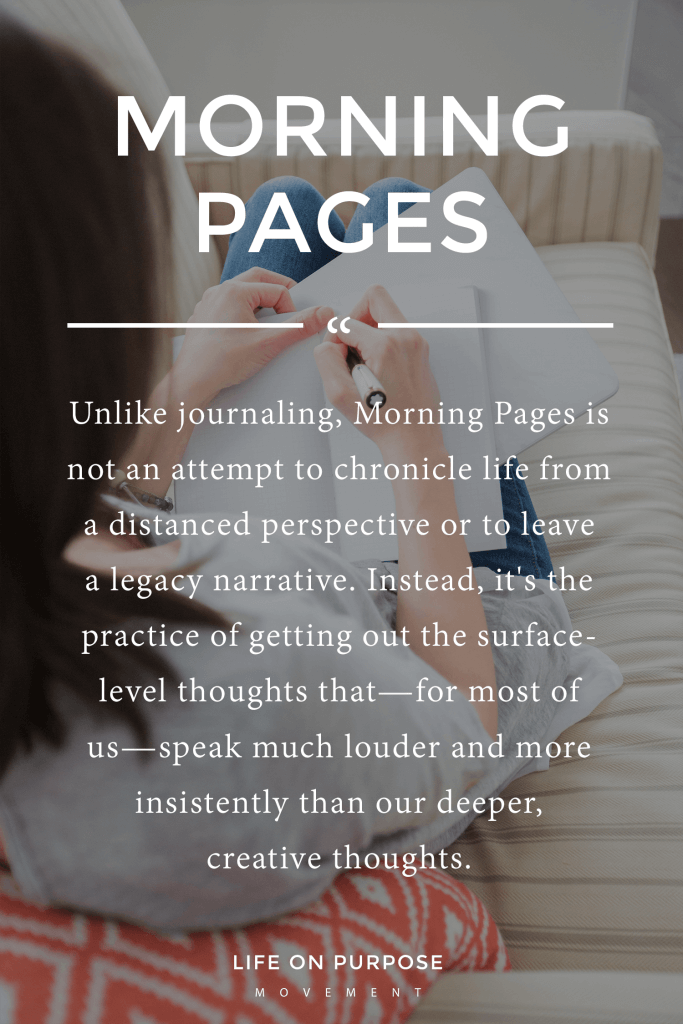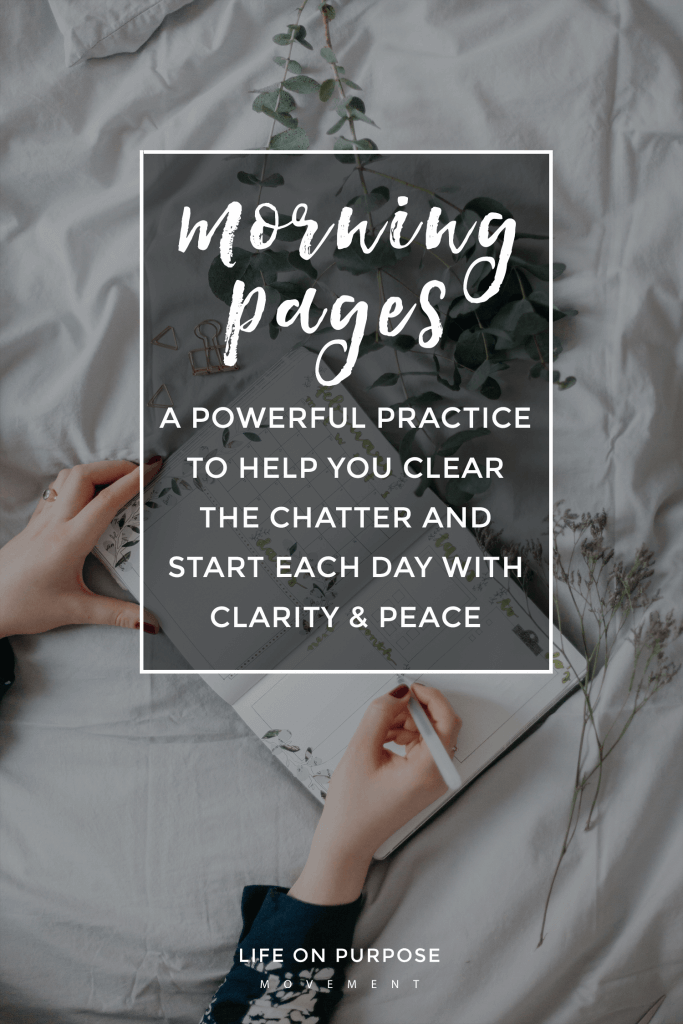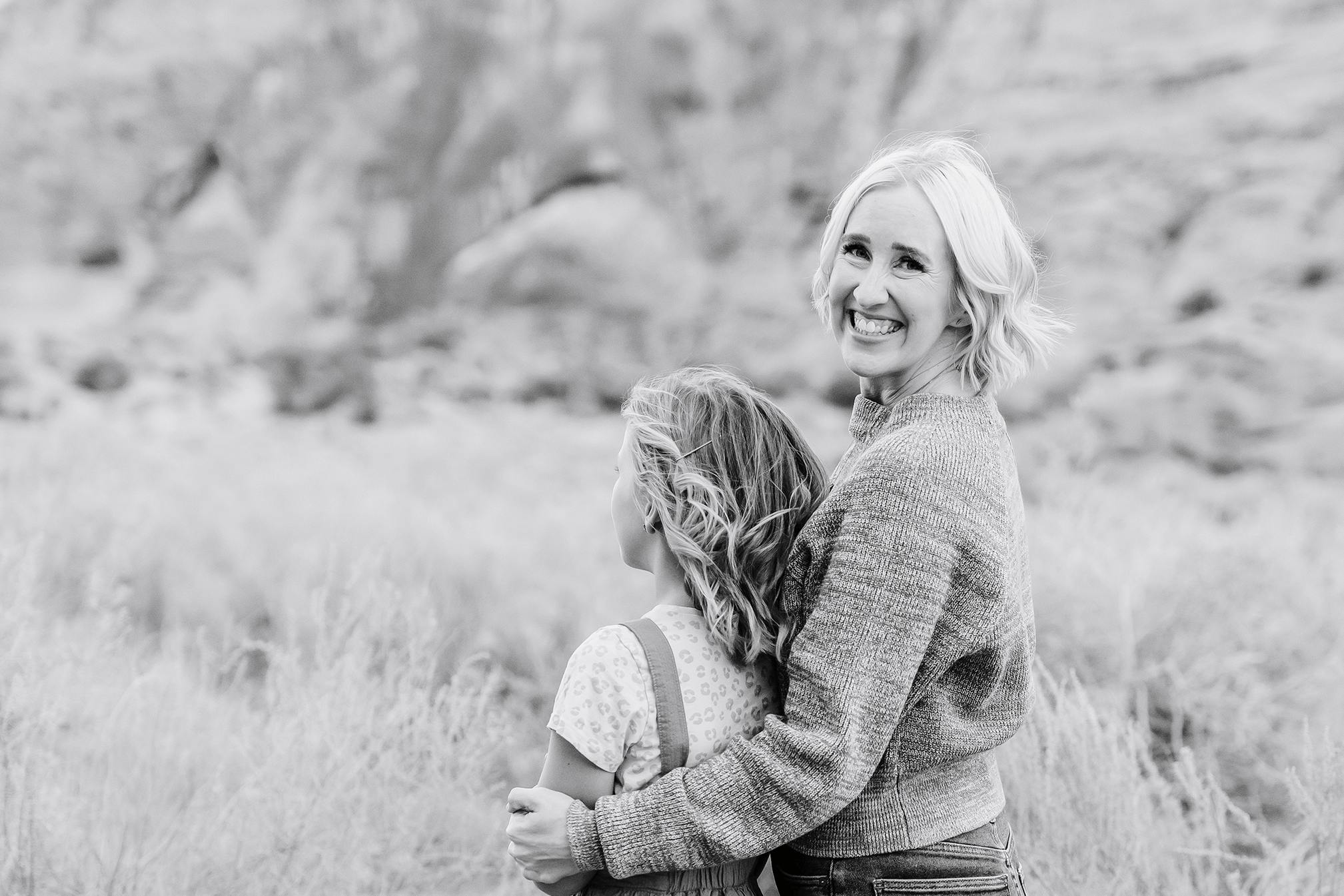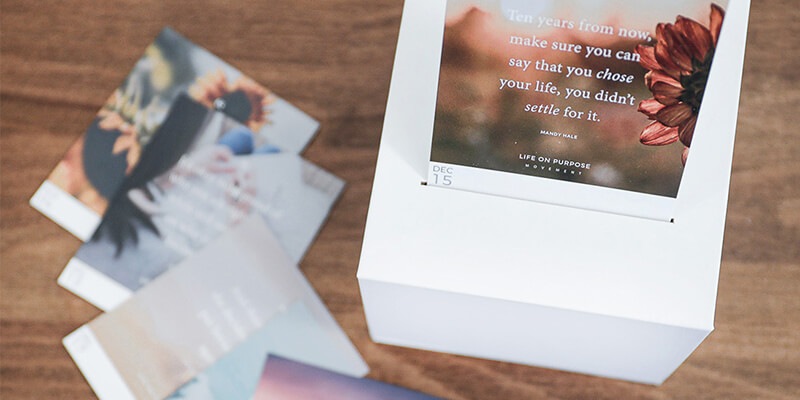A big welcome to today’s guest writer, Lilly Neubauer of Open Hearted Home!
Three years ago, I sat front row in an auditorium listening to Elizabeth Gilbert speak on creativity. Going out on a weeknight to sit smack in front of a favorite author seems like the chosen activity of a woman with her life in forward movement.
Mine was anything but.
I was there not because I identified with the lightness and creative flow Gilbert so freely exhibited in the present moment. I was there because of how closely I resonated with the broken and bewildered place she shares in beginnings of her memoir, Eat, Pray, Love.
It was the last question of the night where I got what I needed.
“So you’re hiding in the bathroom, facing the unknown. Then you have a book deal and are headed to Italy. How did you get from the bathroom floor to getting a book advance to travel the world and write about it?”
Her answer was shockingly feasible. Between her life falling apart and her great idea, Elizabeth Gilbert did a practice called Morning Pages.
What is Morning Pages?
Morning Pages, created by Julia Cameron in the book The Artist’s Way, is the daily practice of writing three pages of longhand, stream-of-consciousness writing first thing in the morning.
It can be easier though, to explain what it’s not: It’s not an attempt to chronicle life from a distanced perspective or to leave a legacy narrative like we typically associate with journaling.
Instead, Morning Pages is the penultimate brain dump: it’s the practice of getting out the surface-level thoughts that—for most of us—speak much louder and more insistently than our deeper, creative thoughts.

I had nothing to lose…
I’d never been able to journal consistently before, but this time, the stakes were high. I was in enough pain to be willing to try anything. And if Morning Pages got Elizabeth Gilbert an adventure to Italy, India, and Bali, I figured the practice at least had the potential to get me out of my funk.
Initially, it was hard to see my thoughts on paper. They were depressed, hopeless, and extremely angry. How could beginning my day with that be helpful?
But then I noticed how once the journal was closed and I got out of bed and into the world, I felt lighter.
By some form of magic, it feels like the second the chatter from my brain hits the page through my pen, the noise disappears, and I unlock a calmer, deeper perspective for the day.
5 Lessons We Can Learn from The Practice of Morning Pages
1. There’s so much more going on in our heads than we ever realize.
The junk shakes out, one by one, line after line. I sometimes feel finished at the end of the second page, but it’s always on the last line of the third page that my headspace feels empty—ready to receive and cultivate bigger ideas. Push through until you uncover it all.
2. When we give a voice—even a silent one—to our deepest, scariest thoughts, we release the shame and attachment to them.
Under our surface-level thoughts are the deepest ones that we rarely give a voice to—unresolved anger, terrifying worries, judgmental thoughts. When I fully participate in Morning Pages, the thoughts I try my hardest to deny end up on those pages. And just like that, the shame and attachment to them are gone. I see that it was just a thought in my head like all the lines before and after it in my Morning Pages. (We are not our thoughts.)
3. Putting thoughts on a page keeps us from putting them on others.
Yes, I wouldn’t want anyone to see what I had written and think those thoughts and feeling were who I am. But I am better for having found a way to get them out of my head. When I put them on the page, I don’t end up putting them on others when my thoughts became too much to carry.
4. With practice, we can train our minds to feel gratitude first.
I’m a mother who loves my child and family, which, for me, can translate into a constant state of worry. Having done Morning Pages for a few years now, I’ve noticed the first thought that pops into my head when I wake up these days is gratitude, right before the flood of worry.
The benefit of starting my day by looking at my worries (in contrast to my past pattern of jumping out of bed and denying them) is that I have the opportunity in that exact moment to convert the worry into surrender. And somehow, this has made room for gratitude in my life.
5. Regular maintenance goes a LONG ways.
Sometimes my day can look like a series of seemingly tedious tasks—cleaning the lint trap in the dryer, getting my oil changed, and flossing. The commonality in these is how, as much as they can feel like a worthless use of my time, they’re investments I’m willing to make for optimal performance. An empty lint trap makes the sheets fresh and crisp, just like I like them. I enjoy driving more when my car runs like a top. As much as I hate to admit it, my mouth feels great after flossing.
It’s become the same with Morning Pages.
As much as I would love to roll out of bed some days without the task of putting pen to paper, my family and myself have become used to my head and heart clear of small thoughts and ready for a big day.
Keeping up the practice of Morning Pages is the least I can do to show gratitude for the bigger life the practice brings me.
So if you need to find me, I’ll be spending five minutes filling three pages every morning.
Maybe one day it will be from Bali.
Lilly Neubauer shares her family’s journey to live an authentic, creative life at openheartedhome.com. She lives in Dallas with her husband, Markus, who co-authors Open Hearted Home, their daughter, who was welcomed through domestic adoption, and their many animals. You can find Lilly on Instagram and Facebook.

Could you see yourself doing this? Have you ever tried anything similar?





Wonder why it is absolutely necessary to write by end, with a pen, on paper. I’m so used to writing on my computer (laptop) that I’ve (almost) completely lost the habit of writing by hand with a pen. Wouldn’t it be possible to indulge in the ritual of Morning Pages through my usual way of writing — that is through the keyboard on the laptop? Thanks!
I imagine that could work, Armande! I think there’s something a biiiit different about the connections we make when using paper and a pen, but I’m just saying that anecdotally——from my own experience. That said, my hand sometimes cramps up when I use a pen (or do other fine motor skills), so I could totally see myself needing to do it on a computer at some point. So basically, I say do what works for you!
This is a lovely routine! Have done this during the last decade or so -not continuously but over many separate seasons. After some time, each time ,I noticed an ‘absense’, an absense of anxiety, of unsettled ness.
Julia Cameron’s book, ‘The Artists Way’, really started it for me. Well worth a read, helps on many levels.
This is a wonderful… I believe the practice of “Morning Pages” originated with Julia Cameron in her book, “The Artist’s Way”. Wouldn’t it be appropriate to give her credit for that?
If you click the “morning pages” hyper link in the beginning paragraph, that’s where the link leads! 🙂
Yes, I actually think Lilly’s original words made it more clear, but I did a bit of editing and must have lost that clarity! Going back in and editing it now! Thanks, ladies!
My sincere apology, I completely overlooked the link, thank you for pointing it out.
I have noticed you don’t monetize ericalayne.co, don’t waste your traffic, you can earn additional bucks
every month with new monetization method. This is
the best adsense alternative for any type of website (they approve all websites), for
more info simply search in gooogle: murgrabia’s tools
I was suffering post traumatic stress after I attempted to give mouth to mouth ressusitation to a bomb victim whose mate had knocked at my door one morning. The young man died. I had tried to find a mask in my kit but there wasnt time. My neighbour came to help and she tried the compressions . It was awkward because he was in the back seat of a car. we kept going until the ambulance arrived , which seemed like. forever. .When they had left i washed his blood off my mouth but i couldnt get rid of the metalic taste. This was the begining of a very dark phase of my life, whatgot me through was writing every day until the scene wasnt on replay in my head all the time. eventually the need to write about it and the dayly challenges associated with it dispersed . Anti depressants and being able to write all that anguish out of me helped to heal me.
Oh my goodness, Monica! I can only imagine. I’ve actually read about this before in some sort of psychology book or article (I wish I could remember where) – about how speaking about or writing about a traumatic incident again and again can help it lose its power, so to speak. I’m so glad you found some relief through writing. Sending love!